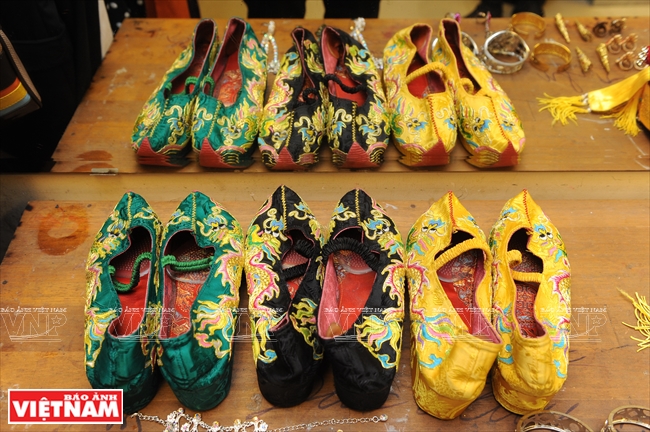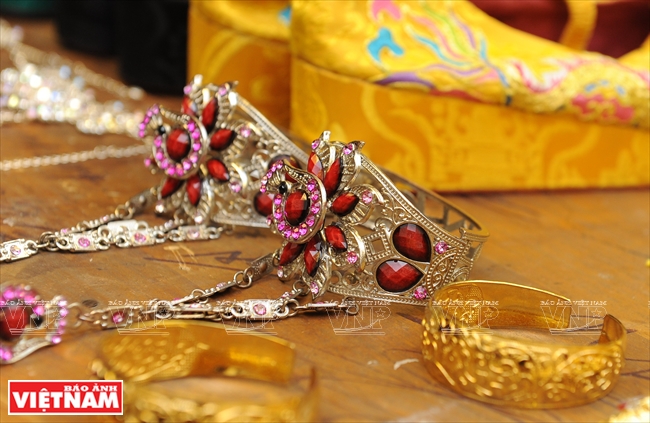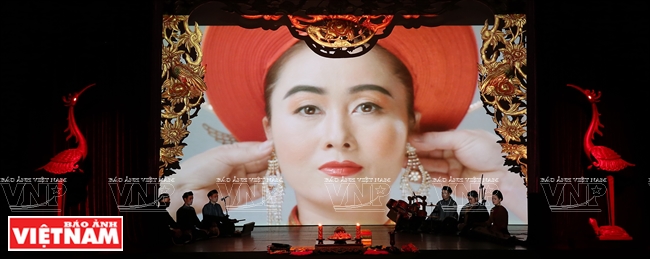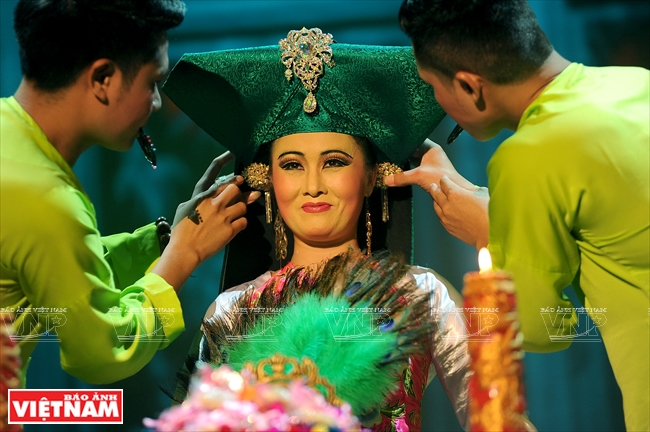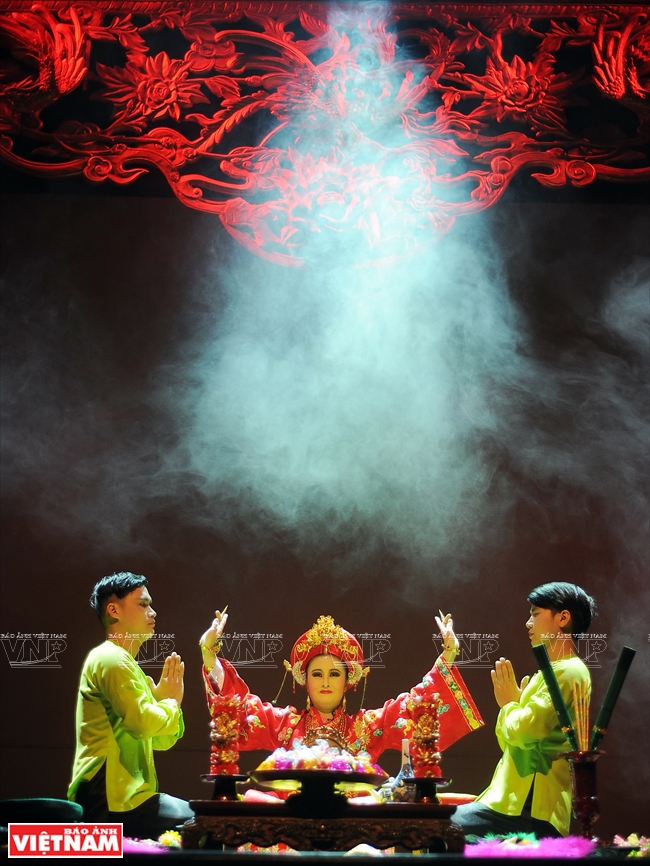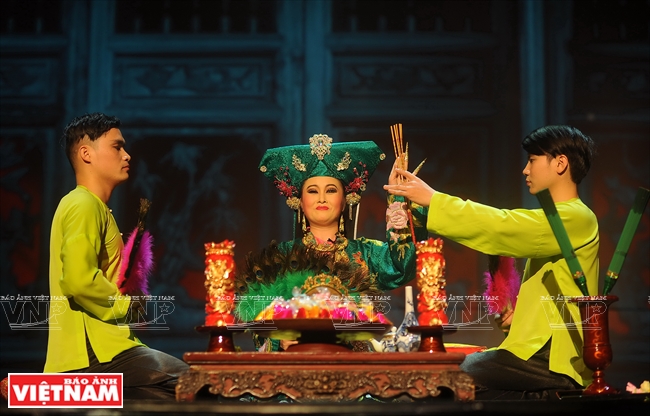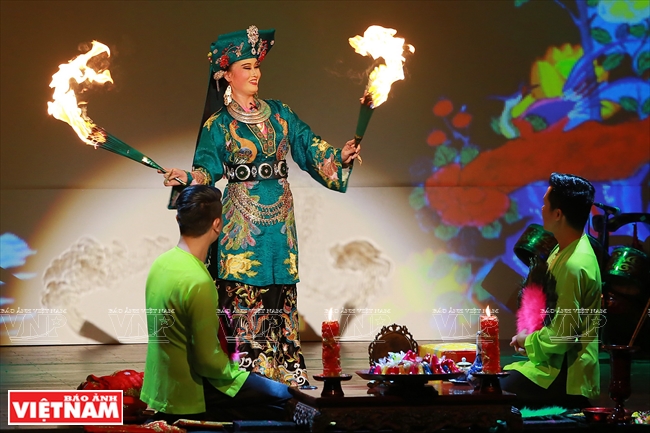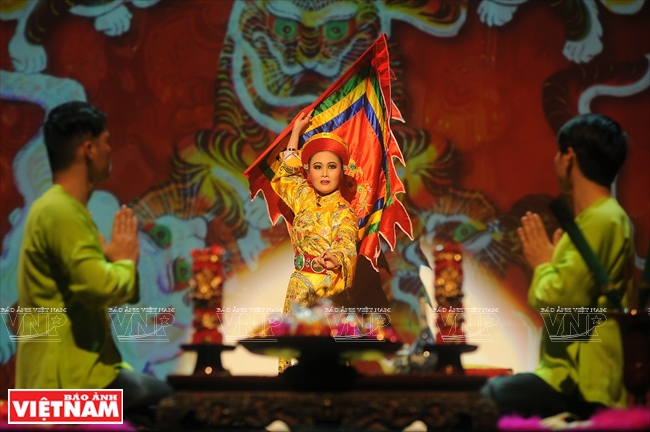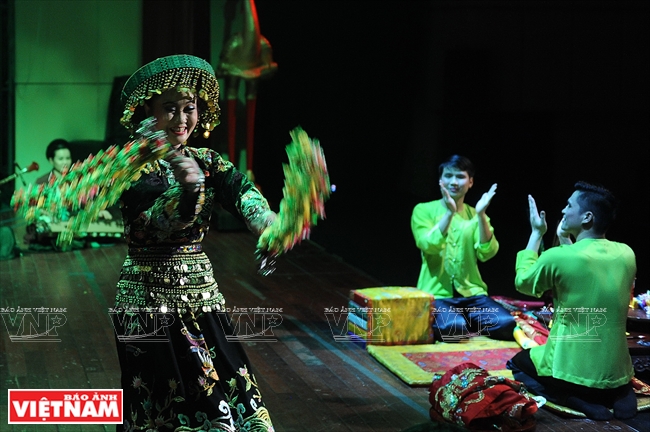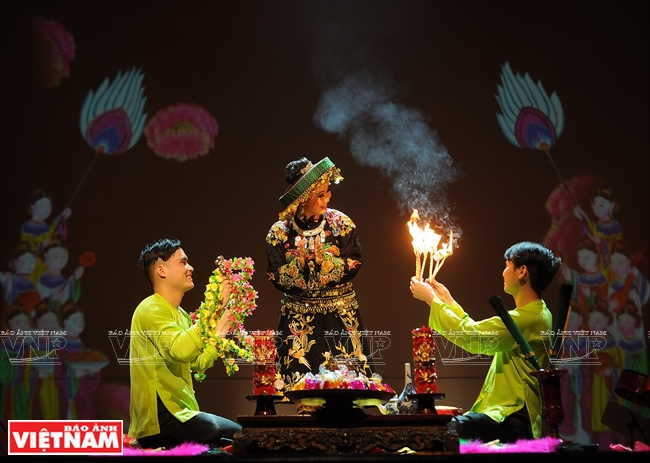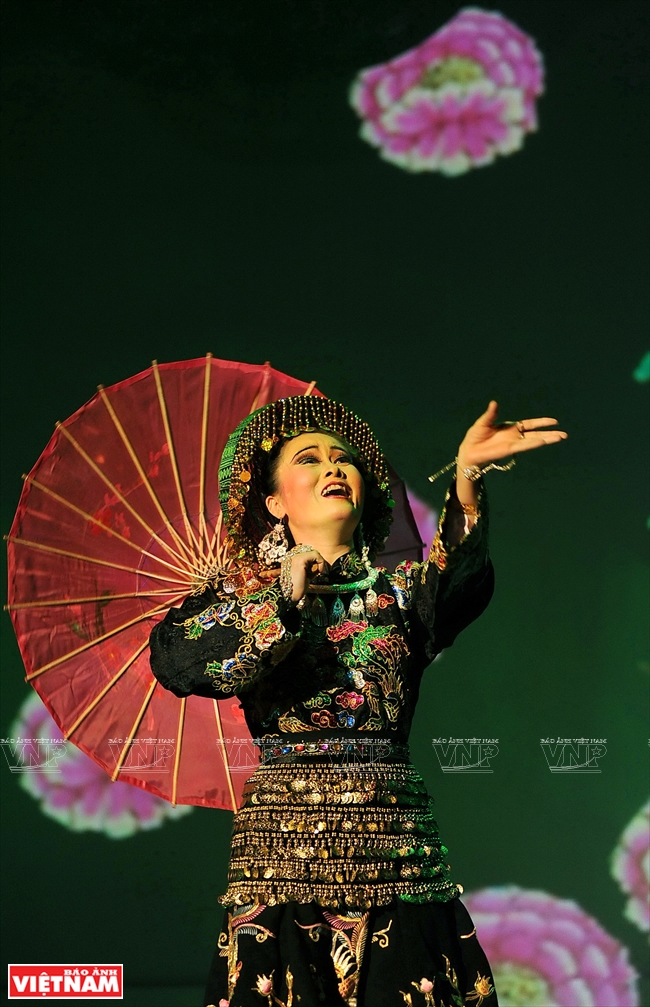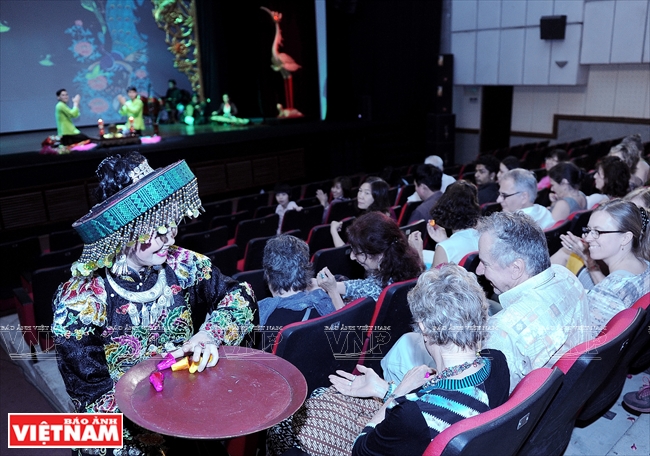According to Ngo Duc Thinh, the Director of Vietnam Belief Culture Research and Preservation Centre in Hanoi and Vice Chairman of the Asian Folklore Council, the religion encompasses four key aspects that are deeply rooted within the community. First, it venerates nature as a mother figure and worships her. Second, it provides people with the eternal desires of happiness, prosperity, and longevity. Third, it prominently reflects patriotism, which has become a core belief and attitude of the people.
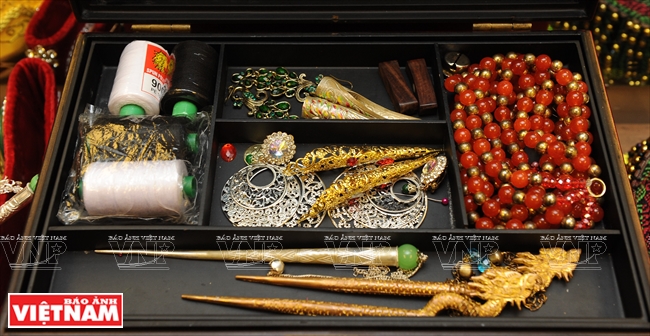
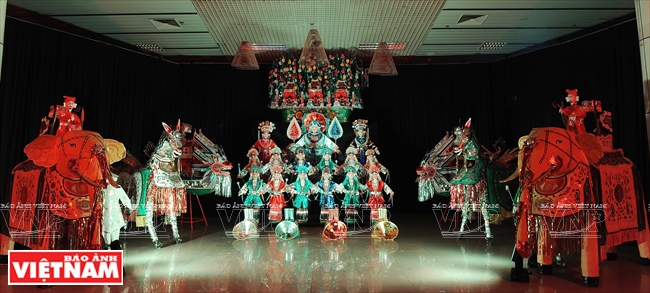
Paper votives are beautifully and delicately arranged at the performing place. Photo: Tran Thanh Giang/VNP 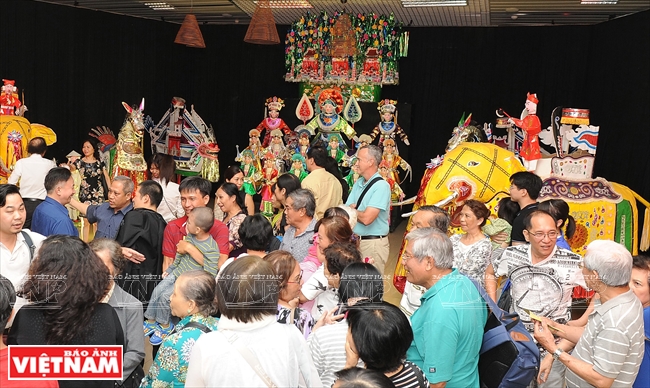
The “Tu Phu” performance attracts a lot of domestic and foreign audiences. Photo: Tran Thanh Giang/VNP
|
| The Vietnamese believe that the “Four Palaces” are the abodes of spirits representing different realms. These include Thien Phu (Heaven), governed by Mau Thuong Thien (Mother Goddess of the Upper Sky); Nhac Phu (Forest), ruled by Mau Thuong Ngan (Mother Goddess of the Forest); Thuy Phu (Water), overseen by Mau Thoai (Mother Goddess of Water); and Dia Phu (Earth), presided over by Mau Dia (Mother Goddess of Earth). These Four Palaces are highly significant in the Vietnamese indigenous religion. |
The Mother Goddess Religion of the Vietnamese venerates nearly 50 deities, many of whom are historically significant figures that have made notable contributions to the nation. For example, Tran Hung Dao is revered as Saint Tran. This religion embraces a multicultural belief system that is unique to Vietnamese traditions. Among the 50 deities, over ten are from ethnic minorities, illustrating the Vietnamese people’s long-standing recognition of cultural integration. The religion promotes fairness and inclusivity for all, regardless of ethnicity, and embraces diversity. This aligns with the global pursuit of unity and understanding among all humanity.
According to Vietnamese beliefs, the “Four Palaces” are sacred dwelling places of spirits representing different realms. These include Thien Phu (Heaven), governed by Mau Thuong Thien (Mother Goddess of the Upper Sky); Nhac Phu (Forest), ruled by Mau Thuong Ngan (Mother Goddess of the Forest); Thuy Phu (Water), overseen by Mau Thoai (Mother Goddess of Water); and Dia Phu (Earth), presided over by Mau Dia (Mother Goddess of Earth). These Four Palaces hold great significance within Vietnamese indigenous religion.
In order to engage the public in the worship of Mother Goddesses, preserve Vietnam’s cultural heritage, and promote it globally, a captivating series of Hau dong performances, including the “Tu Phu” show, has been curated. The “Tu Phu” show has garnered significant attention from the public.
The Hau dong ritual is an immersive experience where devotees channel 36 different spirits. This captivating ceremony incorporates music, singing, dance, and elaborate costumes. The “Tu Phu” program offers three distinct sessions. These sessions include “De nhi,” which showcases the elegance and distinctiveness of Vietnamese attire; “Ong Hoang Muoi,” symbolizing the resilience, bravery, and love for the country of the Vietnamese people; and “Co be,” embodying innocence and zest for life.
The performance sessions captivated viewers with their rich content and exquisite blend of performing arts, singing, dancing, and music.
Mother Goddess worship and Hau dong have become integral aspects of Vietnamese spirituality, deeply ingrained in the hearts and minds of the people. This belief system originated from and continues to thrive within the collective consciousness of the Vietnamese community.
|
Vietnam is currently submitting the profile of “The Mother Goddess Religion of the Vietnamese” to UNESCO for recognition as an intangible cultural heritage of humanity. |
Story: Thao Vy – Photos: Tran Thanh Giang & Files

